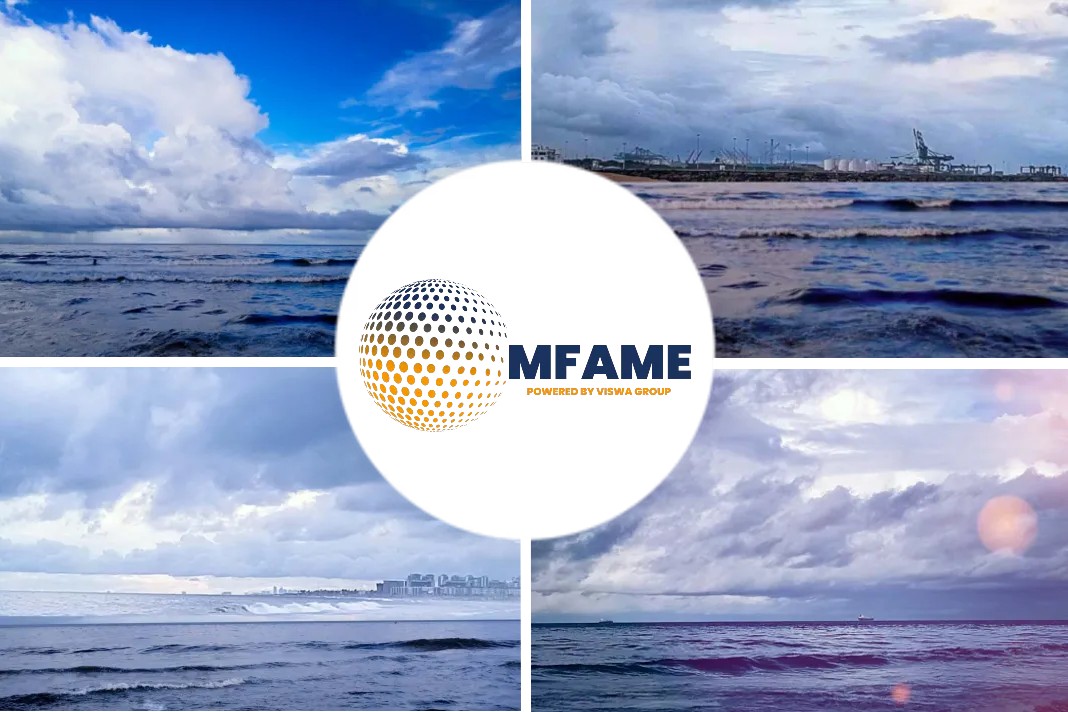26 per cent of newbuilds in 2021 by gross tonnage are expected to be LNG fuelled. Interest in LPG is growing. There is some interest in methanol, ammonia, hydrogen and batteries, reports Tanker Operator quoting a DNV webinar.
“What we have seen with LNG in the last few years, there’s a very strong interest in LNG as fuel for new buildings,” said Christos Chryssakis, Business Development Manager, Maritime with DNV.
“This is driven by several factors. Some is [driven by] charterers interested in their own carbon footprint; LNG is useful for [shipowners to] comply with EEDI requirements or for vessels looking to reduce CII. So, it is offering several benefits.”
Transition fuel
LNG is being mainly used on very large vessels – this is illustrated by the statistic that 6 per cent of newbuild vessels in 2020 had LNG fuel, but that amounted to 20 per cent of gross tonnage.
In 2021, 12 per cent of new vessels have LNG as a fuel, but it works out about 26 per cent by gross tonnage. LNG fuelled vessels include 40 per cent of large oil tankers and 30 per cent of large bulk carriers, he said.
“In the largest vessels of each segment we see a very strong interest for LNG. These are the vessels that can benefit the most.
LNG might be better referred to as a “fuel in transition” rather than a “transition fuel”, since LNG itself may be decarbonised in future, such as being made from biogenic sources or from green hydrogen, Mr Chryssakis said.
“We already see some large container owners running bio-LNG as part of their fuel needs. We see many owners being interested in testing and using that fuel. We expect availability of bio-LNG to increase very significantly in coming years.”
“This is definitely going to be an option, to reduce carbon intensity by replacing fossil LNG with a clean version of that fuel.”
LPG
Interest in LPG is also growing. “We had the first 10 LPG carriers retrofitted to run on LPG. 100 per cent of new orders for LPG carriers are placed with LPG as fuel,” he said.
“This is definitely a fuel for that segment with obvious reasons, they always go to LPG terminals, they can refuel as they load their cargo.”
“We have seen interest from other ship types, but we haven’t seen orders yet for other ship types.”
“LPG so far this year is about 5 per cent of orders in terms of number of vessels.”
Other fuels
Methanol is another fuel that is growing in interest. Until fairly recently it has only been used for tankers, but “earlier this year we saw the first order for container vessels,” he said.
“We see a lot of interest in other fuels, for example ammonia, [but] you can’t really place an order yet.”
“We know there are projects for vessels planning to install ammonia engines that will be commercially available after 2024-2025. We’re seeing interest in vessels that are ‘ammonia ready‘.”
Interest in hydrogen so far is mainly for small vessels.
Batteries are being considered as part of “hybrid propulsion architectures,” where a battery is used alongside a conventional engine, as with a hybrid car.
Audience 2050 survey
The audience was asked which fuel they think will dominate shipping in 2050.
32 per cent said ammonia, 29 per cent hydrogen, 19 per cent methanol or other alcohols, 15 per cent said LNG and LPG, 6 per cent electricity (total 101 per cent due to rounding). There were 950 respondents.
Commenting on this, Mr Chryssakis said, “it seems that our audience is really forward leaning I would say, looking at fuels which are carbon free molecules.”
“I see there is quite a bit about methanol.”
“It is very important how these fuels are produced. We can have clean LNG, clean methanol, we can have clean LPG.”
“And also, it is quite interesting to think about how we’re going to get there. Ammonia is not available today. There’s a lot of development as we speak. We expect this technology to be available in the next few years. It will take some time before we can use it in large volumes. For 2050 our audience is looking forward to using such a fuel.”
Did you subscribe to our daily Newsletter?
It’s Free! Click here to Subscribe
Source: Tanker Operator
























